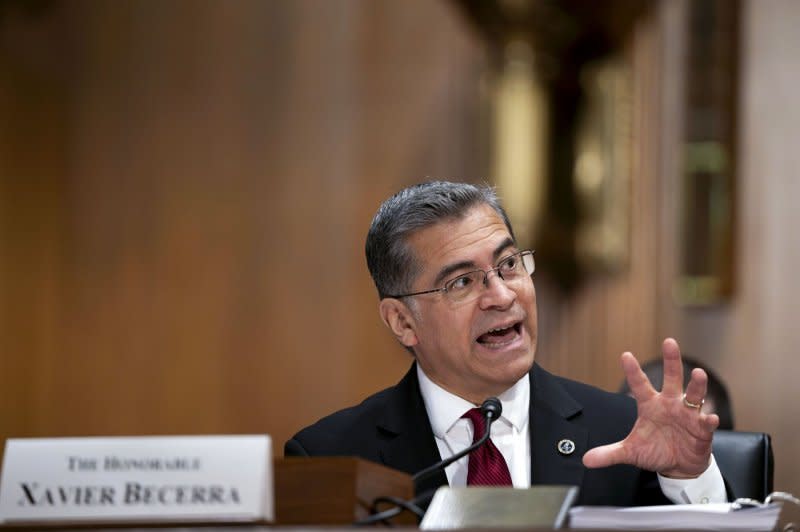NIH launches 2 clinical trials testing HIV drug on women, other minority groups

June 4 (UPI) -- The National Institutes of Health on Tuesday said they are seeking to now include underrepresented population groups for HIV studies.
The two new clinical trials launched by NIH will collect data on a twice-yearly HIV pre-exposure prophylaxis drug, known as PrEP and which seeks to prevent HIV, in underrepresented U.S. population groups in clinical research such as women and drug users.
The NIH trials seek to examine use of the drug Lenacapavir that prevents the human immunodeficiency virus -- or HIV -- in cisgender women who were assigned female at birth, and intravenous drug users.
The federal government says women and people who inject drugs accounted for 18% and 7% of new U.S. HIV diagnoses in 2021, respectively. And along with Black, pregnant and transgender Americans make up the large majority of under-studied demographics as it relates to HIV.
The clinical trials will "assess the safety, acceptability, and pharmacokinetics," which is how a drug moves through the body, of the antiretroviral drug administered by injection every six months, NIH said in a news release.

More than 1 million Americans have HIV, with about 13% who do not know it and require testing, according to HIV.gov. The Biden administration in December 2021 unveiled their strategy to end the United States' HIV/AIDS epidemic by 2030.
But according to UNAIDS, the number of people on antiretroviral treatment worldwide rose almost fourfold, from 7.7 million in 2010 to 29.8 million in 2022. However, a recent study by the CUNY Graduate School of Public Health and Health Policy in New York City found a large percentage of people who start PrEP later stop using it.

"Ending the HIV epidemic requires us to reach people living with the virus where they are, and that's exactly what this program allows us to do," Health and Human Services Secretary Xavier Becerra said last year as HHS announced a $147 million funding increase to combed HIV/AIDS.
According to NIH, Lenacapavir is already approved for HIV treatments by the Food and Drug Administration -- in combination with other antiretroviral therapy -- for treatment-experienced patients whose HIV infections cannot be successfully treated with other available treatments due to resistance, intolerance or safety considerations with other drugs or a developed multidrug resistance.
The first trial will enroll cisgender women with a focus on making enrollment accessible to women who self-identify as Black and/or Latina. The second trial will enroll a "diverse group" of people who inject drugs.
The NIH-backed studies are sponsored and funded by Gilead Sciences and implemented through the HIV Prevention Trails Network, which is supported by grants from the NIH's National Institute of Allergy and Infectious Diseases, the National Institute on Drug Abuse and other NIH institutes.
A 2020 study showed that single injection use of Lenacapavir was able to lower blood levels of HIV in a small group of patients and was capable of maintaining active levels in the blood for more than six months.
The researchers found that, in 40 healthy people, Lenacapavir appeared safe and could remain active in the body for more than six months. And in 32 people with previously untreated HIV, a single injection reduced viral levels in the blood within nine days.
The Centers for Disease Control and Prevention, which has long contended that access to PrEP is key to ridding the United States of HIV/AIDS as prices rise and the drug's availability increases, said last year that young people are driving down HIV infections.
The CDC said it saw HIV infections among those age 13 to 24 drop by 34%, while annual HIV infections dropped from to 6,100 in 2021 from 9,300 in 2017 in that age group.
More information
There's more on PrEP at the U.S. Centers for Disease Control and Prevention.


